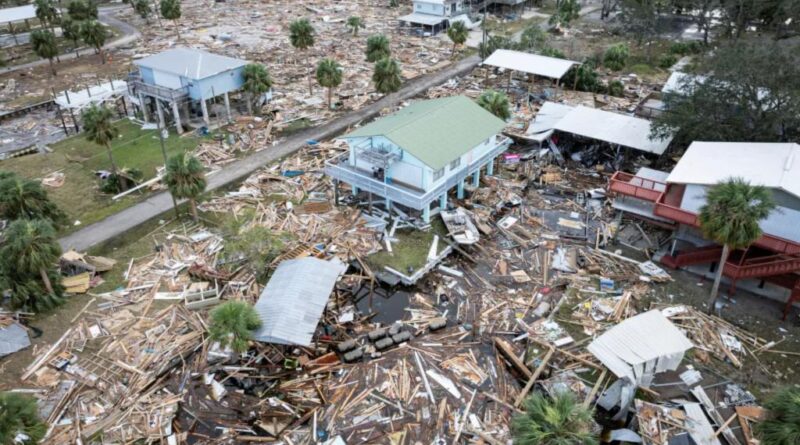Inadequate reaction to Helene’s demands for a fair election leads to controversy
Hurricane Helene has devastated parts of Georgia, east Tennessee and particularly western North Carolina.
The death and destruction it dealt to unprepared mountain communities has been catastrophic.
More than a week later, roads are still closed, thousands lack electricity, and hundreds of people are missing amid an unimpressive response from federal and state governments.
So leave it to Politico to ask the big question: Is this good for the Democrats?
“The parts of western North Carolina and eastern Georgia that were flooded by the monster storm are largely Republican,” the outlet noted.
“In 2020, [Donald Trump] won 61% percent of the vote in the North Carolina counties that were declared a disaster after Helene. He won 54% of the vote in Georgia’s disaster counties.”
That’s right: The horrors wrought by the hurricane will make it hard for people in those areas to vote.
Since those areas were big sources of Trump votes in the past, this could cost Trump two fairly large states that he’s now leading by just a percentage point or two — possibly swinging the 2024 election.
You can call this analysis crass, and people have.
But Politico’s not wrong: In a close election, even minor changes in turnout can flip a state, and there are bound to be some changes in turnout after this disaster.
People who are without power, short of food and unable to get to their jobs may be less motivated to show up to vote, or even to mail in an absentee or emergency ballot.
And of course in politically polarized times, which these are, some people are wondering if the federal government and the state of North Carolina, both controlled by Democrats, are slow-rolling the recovery efforts in red counties with the election in mind.
“There’s definitely a layer of politics on top of any decision they make, given what happened after COVID,” Chris Cooper, a political science professor at Western Carolina University, told the Politico reporter.
Conservative columnist Matt Vespa voiced a similar suspicion: “It’s becoming more striking how the slow rollout could be due to the Democrats’ intention to prevent those impacted by Helene from voting,” he wrote Saturday.
Others urge us not to “politicize” the hurricane response, though given the over-the-top politicization of Hurricane Katrina by the Democrat-media complex against the GOP in 2005, such exhortations ring hollow.

At the time, the media — and, notoriously, Kanye West — accused the Bush administration of foot-dragging and (of course) racism for its storm response, though years later even top Democratic operative Donna Brazile praised it.
America was once a place where most people — even me — would have dismissed as paranoid nonsense an accusation of a politicized response to a natural disaster in the weeks before an election.
But it’s hard to do that now, after so many of our once apolitical institutions have taken sides.
And that’s dangerous.
If people decide that a presidential election was flipped due to the manipulation of efforts to relieve death and suffering, perhaps at the cost of lives, the damage to our society will be incalculable.
Might a Republican legislature in North Carolina or Georgia refuse to submit the state’s electoral votes if they believe the tally was compromised?
Would a GOP House of Representatives reject the states’ electoral votes for that reason?
It’s uncharted territory that could put the legitimacy of the entire government at risk.
Rather than take that chance, it’s imperative for state and federal officials to conduct this election with meticulous — and visible — scrupulousness.
Relief must be sped to the affected communities, and local election officials must ensure that everyone there has an opportunity to vote safely, despite all the devastation.
And, this being 2024, Politico might be completely wrong about the storm’s political impact.
The slow federal response might make North Carolina’s GOP voters extra-motivated — or even enrage its Democrats and independents into sending a message to the White House.
Perhaps voters in next-door Virginia, currently leaning Democratic, may be disgusted enough by this administration’s mismanagement to vote in a new one.
In the words of Webb Wilder, I can’t predict the future, but I can take a hint.
And so should the White House, and North Carolina’s state government: They’d better be on their best game, and their best behavior, as they conduct this election less than one month from now.
Glenn Harlan Reynolds is a professor of law at the University of Tennessee and founder of the InstaPundit.com blog.



